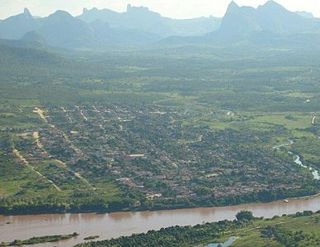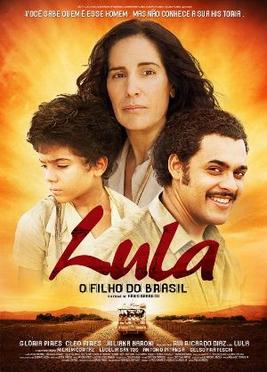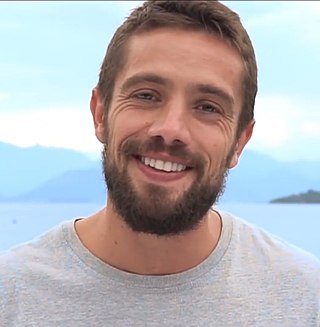This is a list of Brazilian films released in 2012 .
| Title | Director | Cast | Genre | Notes |
|---|---|---|---|---|
| 2 Coelhos | Afonso Poyart | Fernando Alves Pinto, Alessandra Negrini, Caco Ciocler, Marat Descartes, Djair Guilherme, Roberto Marchese | Action | |
| À Beira do Caminho | Breno Silveira | João Miguel, Dira Paes, Vinícius Nascimento, Ludmila Rosa, Denise Weinberg | Drama | |
| A Música Segundo Tom Jobim | Dora Jobim, Nelson Pereira dos Santos | Bio-pic | ||
| Artificial Paradises | Marcos Prado | Nathalia Dill, Luca Bianchi, Lívia de Bueno | Drama | |
| As Aventuras de Agamenon, o Repórter | Victor Lopes | Marcelo Adnet, Luana Piovani, Fernanda Montenegro, Hubert, Cláudio Tovar | Comedy | |
| Astro: An Urban Fable in a Magical Rio De Janeiro | Paula Trabulsi | Alexandra Dahlström, Veronica Debom, Cláudio Cavalcanti | Drama | |
| Billi Pig | José Eduardo Belmonte | Selton Mello, Grazi Massafera, Cássia Kis Magro, Preta Gil, Aimée Espinosa | Comedy | |
| Brichos - A Floresta é Nossa | Paulo Munhoz | Animated film | ||
| Colegas | Marcelo Galvão | Ariel Goldenberg, Rita Pokk, Breno Viola, Lima Duarte, Rui Unas, Deto Montenegro | Comedy | |
| De Pernas pro Ar 2 | Roberto Santucc | Ingrid Guimarães, Flávia Alessandra, Heloísa Perissé, Bruno Garcia | Comedy | |
| Dirty Hearts | Vicente Amorim | Tsuyoshi Ihara, Takako Tokiwa, Eiji Okuda, Shun Sugata, Kimiko Yo, Eduardo Moscovis, Celine Miyuki | Thriller | Based on the Brazilian best-seller book with the same name written by Fernando Morais [1] |
| E Aí, Comeu? | Felipe Joffily | Bruno Mazzeo, Tainá Müller, Marcos Palmeira, Dira Paes | Comedy | |
| Father's Chair | Luciano Moura | Wagner Moura, Mariana Lima, Lima Duarte | Drama | The film was selected for the 2012 Sundance Film Festival. [2] |
| Febre do Rato | Cláudio Assis | Nanda Costa, Matheus Nachtergaele, Juliano Caszarré | Drama | |
| Giovanni Improtta | José Wilker | José Wilker, Andréa Beltrão, Marcelo Adnet, Jô Soares, Milton Gonçalves, André Mattos | Comedy | |
| Gonzaga - De Pai pra Filho | Breno Silveira | Chambinho, Land Vieira, Julio Andrade, Nanda Costa | Drama | |
| Heleno | José Henrique Fonseca | Rodrigo Santoro, Alinne Moraes, Othon Bastos, Herson Capri | Bio-pic | Official selection, Toronto International Film Festival [3] |
| Jorge Mautner - O Filho do Holocausto | Pedro Bial, Heitor D’Alincourt | Jorge Mautner, Gilberto Gil, Caetano Veloso | Documentary | |
| Independent Roads | Lucas Estevan Soares | Louise D’Tuani, Marcelo Cavalcanti, Giordanna Forte, Roberto Birindelli, Jeff Grace, Camila Leccioli, Jochen Matschke, Max Dern, Edgar Díaz, Fernando Renny de Oliveira, Lucas Estevan Soares, Arisa Nanasi, Eiji Leon Lee | Drama | |
| Uma Longa Viagem | Lúcia Murat | Caio Blat | Documentary | |
| Luz nas Trevas – A Volta do Bandido da Luz Vermelha | Helena Ignez, Ícaro Martins | Ney Matogrosso, Maria Luisa Mendonça, Simone Spoladore, André Guerreiro Lopes, Djin Sganzerla | Adventure | |
| Marighella | Inês Grinspum Ferraz | Documentary | ||
| Neighbouring Sounds | Kleber Mendonça Filho | Irandhir Santos, Gustavo Jahn, Maeve Jinkings | Drama | Appointed by the critic A. O. Scott from The New York Times as one of the world's top 10 movies made in 2012 [4] |
| O Homem que Não Dormia | Edgard Navarro | Bertrand Duarte, Evelin Buchegger, Fabio Vidal, Mariana Freire | Horror | |
| Once Upon a Time Was I, Verônica | Marcelo Gomes | Emilio Dantas, Remo Rocha, Paloma Duarte | Drama | |
| Paralelo 10 | Silvio Da-Rin | Documentary | ||
| Peixonauta - Agente Secreto da O.S.T.R.A. | Célia Catunda, Kiko Mistrorigo | Animated film | ||
| Ponto Org | Patrícia Moran | Drama | ||
| Reis e Ratos | Mauro Lima | Selton Mello, Rodrigo Santoro, Seu Jorge, Daniel Alvim, Cauã Reymond, Rafaela Mandelli, Otávio Muller | Comedy | |
| Somos tão Jovens | Antônio Carlos da Fontoura | Thiago Mendonça, Bruno Torres, Júlia Lemmertz, Sandra Corveloni | Drama | |
| Southwest | José Eduardo Belmonte | Simone Spoladore, Julio Adrião, Victor Navega Motta | Drama | |
| Swirl | Helvécio Marins Jr., Clarissa Campolina | Maria da Conceição, Luciene Soares da Silva, Wanderson Soares da Silva | Drama | |
| Tabu | Miguel Gomes | Carloto Cotta, Teresa Madruga, Ana Moreira | Drama | Co-production with Portugal, Germany and France [5] |
| Totalmente Inocentes | Rodrigo Bittencourt | Mariana Rios, Fábio Assunção, Fábio Porchat | Comedy | |
| Traço Concreto | Danilo Pschera, Eduardo Baggio | Documentary | ||
| Violeta Went to Heaven | Andrés Wood | Francisca Gavilán, Gabriela Aguilera, Vanesa González, Luis Machín | Drama | Co-production with Chile and Argentina [6] |
| Xingu | Cao Hamburger | Caio Blat, João Miguel, Felipe Camargo | Adventure | The film was selected for the 62nd Berlin International Film Festival. [7] |
















